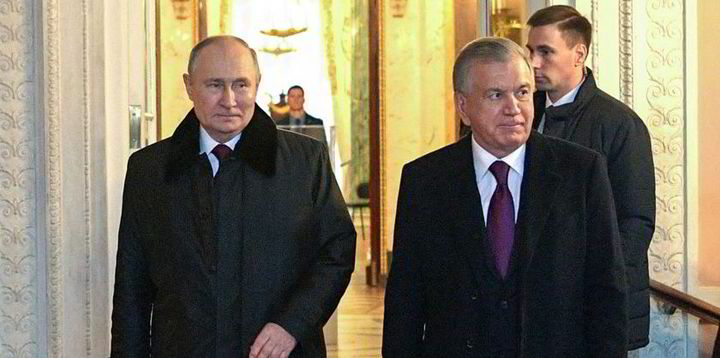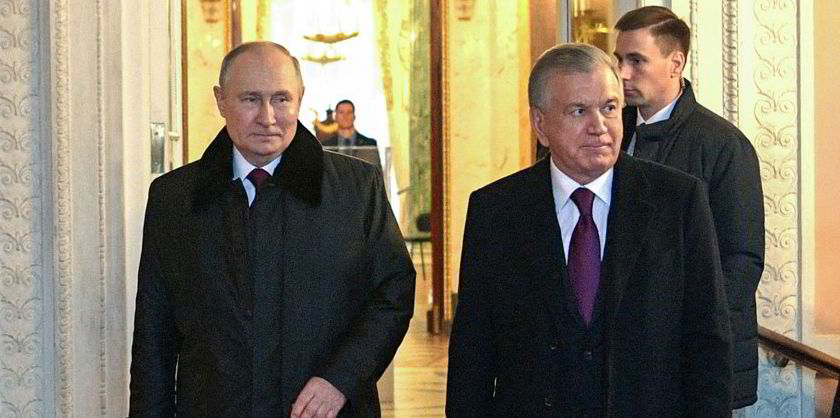Russia has strengthened its energy stronghold over Uzbekistan with increased oil and gas supplies to this fast-growing former Soviet republic, severely sidelining the Central Asian country’s neighbours Kazakhstan and Turkmenistan as alternative sources.
Uzbekistan received its imports of Russian crude via a pipeline and rail lines that cross Kazakhstan, with pipeline volumes set to increase by 10% to more than 4 million barrels of oil this year under a new agreement, according to Kazakh state run oil pipeline operator Kaztransoil.
Russia sent 1.1 million barrels of crude last year to Uzbekistan after resuming exports via Kazakhstan, halted in 2019.
Russia has been keen on increasing its energy supplies to Uzbekistan, Kazakhstan and other former Soviet countries in Central Asia as it looks to build international support following its invasion of Ukraine in early 2022.
At the end of November last year, Kaztransoil said Uzbekistan’s largest oil producer, Saneg, had notified the Kazakh operator that it has an option to boost its imports of Russian crude to over 7.3 million barrels in 2024.
The imports would outweigh Uzbekistan’s domestic output by Saneg, state owned Uzbekneftegaz and several other producers, which according to statistical reports in Tashkent, last year produced about 5.8 million barrels of oil.
Article continues below the advert
As well as operating several major oilfields in Uzbekistan, Saneg controls the country’s largest oil refinery, Fergana.
Built during the Soviet era, the Fergana plant once boasted a nameplate oil processing capacity of more than 120,000 barrels per day.
However, its current capacity is assessed at about 40,000 bpd, despite recent upgrades.
Saneg is owned by influential Uzbek businessman Bakhtiyer Fazylov, who also has interests in oilfield service and construction businesses in the country.
Saneg declined to comment to Upstream, citing “commercial confidentiality issues”.
Despite the higher transit costs and more complex logistics for Uzbekistan’s imports of Russian crude, as both pipeline and rail cars have to be used, the increased volumes for this year are expected to further decrease oil imports from neighbours Kazakhstan and Turkmenistan.
However, Kazakh news outlet Tengrinews has quoted Kazakstan’s Deputy Energy Minister Erlan Akkenzhenov as denying there was increased competition from Russia to supply Uzbekistan.
If Tashkent “is ready to offer the price and terms to Kazakh producers that are better compared with deliveries to China or other export destinations, we will be prepared to consider higher oil supplies” to Uzbekistan, Akkenzhenov said.
According to the latest available statistics in Astana, Kazakhstan exported 340,000 barrels of oil to Uzbekistan between January and September 2023, despite an initial annual allocation of 2.2 million barrels for the entire year.
Meanwhile, Russian gas giant Gazprom was contracted to deliver 2.8 billion cubic metres of gas to Uzbekistan in 2023, with a contract expected to be renewed later this year.
Uzbekistan’s population of 35.2 million is the highest among former Soviet Central Asian republics and is forecast to continue growing by over 2200 each day this year, according to the Countrymeters website.

